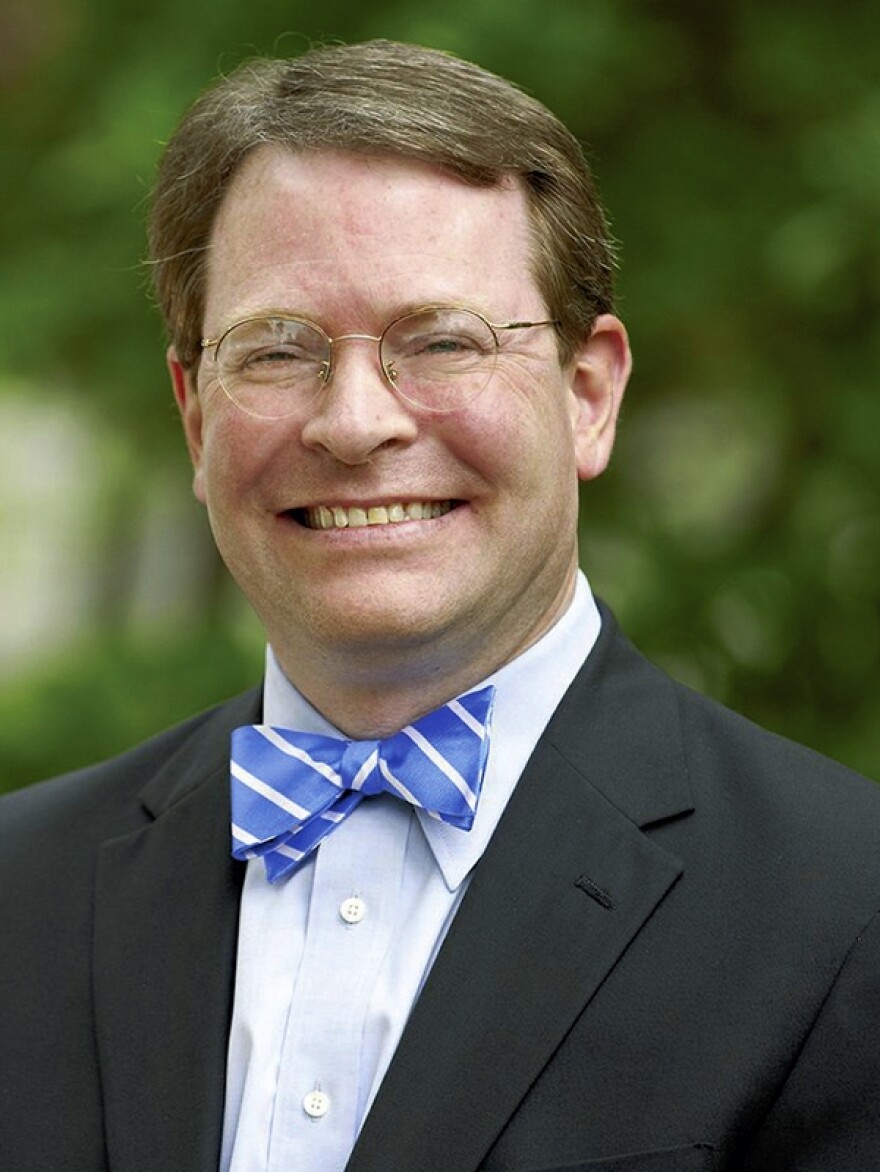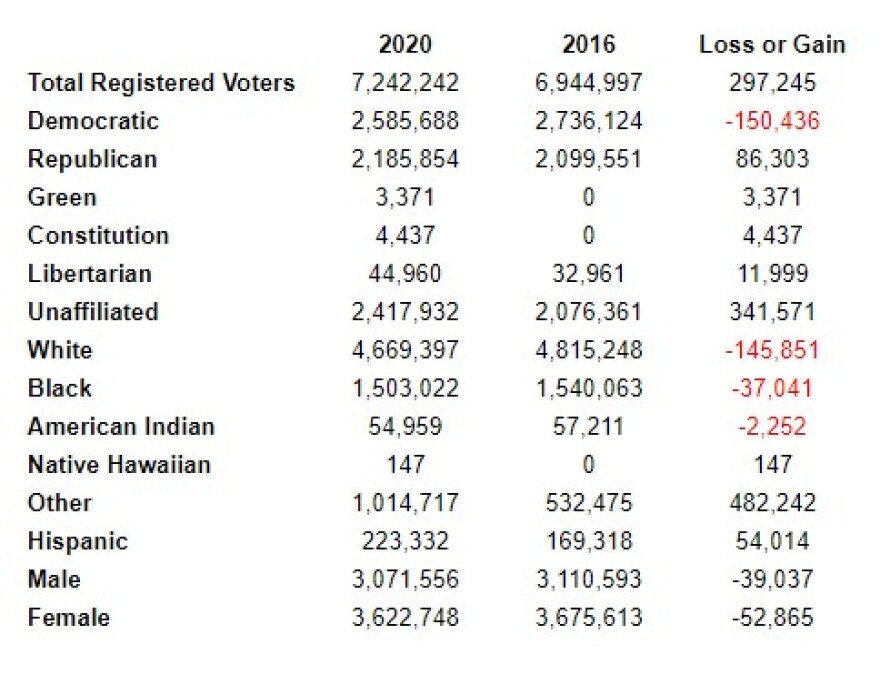North Carolina voters are going to the polls for early voting, which started Thursday. State Board of Elections officials report that more than 7.2 million people had registered by last Friday’s deadline, an increase of about 300,000 since 2016. Michael Bitzer, chair of Catawba College’s Department of Politics, says in terms of new registered voters, that number increased by 1.4 million from four years ago.
In an interview with WFAE's "All Things Considered" host Gwendolyn Glenn, Bitzer said the demographics have changed for new registered voters since 2016, especially in terms of age and affiliation.

Michael Bitzer : This is a very young-oriented electorate. Well over 60% of all these new registrants are under the age of 40. So, millennials and now Gen Z. Those two generations now make up a plurality of the 7.2 million registered voters we have in North Carolina. So, the big question in my mind is, “Will they basically punch up to the weight that they have and could potentially signal a shift in North Carolina’s politics?”
Gwendolyn Glenn : In terms of ethnicity, in terms of income and in terms of party, how are they (millennials and Generation Z) lining up in those areas?
Bitzer: So, millennials — basically anybody from the age of basically 24 to 40 this year — is a very racially diverse generation. They are also driving the registered unaffiliated phenomenon in North Carolina. Right now, registered Democrats as a whole are 36%, registered Republicans 30%, but one-third of all the registered voters are unaffiliated. That does not mean that they’re politically independent, but they maybe just don’t like the labels. And that third of the registered, unaffiliated voters is being driven wholly by younger voters.
Now, what we know from national dynamics is that millennial voters tend to lean Democratic, significantly, as opposed to other generations. So, if those national dynamics are playing out here in North Carolina and if millennials show up in a respectable turnout rate, this could be a very interesting dynamic for the state as a whole.
Glenn: Now, you mentioned unaffiliated voters; that was a jump of close to 342,000 new registrants in terms of unaffiliated gains. Tell us more — is that’s transplants (to North Carolina) as well as younger voters?
Bitzer: They do tend to be non-natives to North Carolina, so we’re seeing this state continue to grow in terms of its population and that’s being reflected also in the voter registration dynamics. They are also tending to move toward urban and suburban counties like Mecklenburg, like Wake, with Raleigh, and the surrounding counties — Union, Gaston, Iredell, Cabarrus. And we’re also seeing those voter registration numbers go up significantly in those counties, as well.
Glenn: And given the issues that we’re looking at now with voter suppression, that’s something that’s on people’s minds, civil rights issues as well. African American registrations went down. What did you make of that?

Bitzer: Well, I think certainly the population as a whole continues to diversify. In particular, it is going toward more voters of color other than Black or African Americans. Hispanic and Latino voters are certainly on the rise. We’re also getting an increase in Asian-Americans who identify racially that way.
We’re also seeing, what’s an interesting trend, is registered voters selecting no race or choosing not to identify with a particular racial category. For those of us who study this kind of thing, we know that often times race and ethnicity will be important factors in how people vote. If we don’t have that information, if it’s masked, it will be interesting to watch North Carolina politics because we won’t know some of those common denominators that we traditionally have known.
Glenn: So when we’re looking at, according to the Board of Elections, in terms of African Americans who registered to vote, there was a loss there of over 37,000 — so it could be a case of some of them just didn’t identify themselves with a particular race?
Bitzer: I think that is certainly a trend that we need to look at and try to understand better. I would not be surprised by that factor. And the other thing that was really remarkable to me in some of these numbers is that historically African American voters have been very much aligned with the Democratic Party. They register Democratic and they are the most loyal Democratic voters. But millennials and particularly Gen Zer’s among Black voters are starting to register unaffiliated. That may not mean they are necessarily breaking their Democratic allegiance that the parents or grandparents have had, but that is certainly something to watch kind of into the future.
Glenn: Michael Bitzer chairs the Department of Politics at Catawba College. And by the way, residents can still register to vote at early voting sites.
Tell us about your voting experience. Did it go smoothly? Were there any problems? How were the lines? Did you feel safe? If so, why or why not?
_



